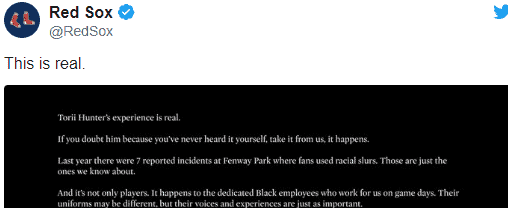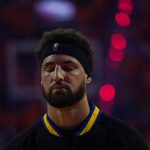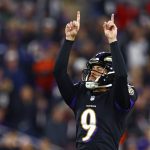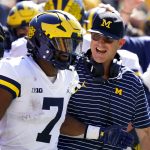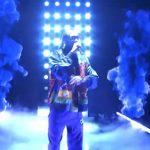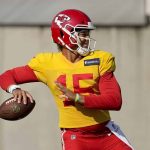Boston sports fans are not considered to be one of the more likable in professional sports. Beyond being incredibly annoying about their extremely successful sports teams, a much more serious allegation has been their dark history of racism. Now to be clear, every fan base in professional sports has fans that would be deemed “racist.” It’s simply inevitable.
Former MLB All-Star Torii Hunter recently revealed that he had a no-trade clause to the Red Sox due to racist abuse as a visiting player,
“I’ve been called the n-word in Boston more than 100 times,” he said on ESPN’s “Golic & Wingo” last week. “All the time. From little kids, and grownups sitting right next to them didn’t say anything.”
The Red Sox backed up Hunter’s claims with a statement on Twitter addressing the issue:
This is real. pic.twitter.com/gMp8MEPb46
— Red Sox (@RedSox) June 10, 2020
Related
- ASU Coach Bobby Hurley Went Off On His AD For The Standoffish Way They Handled Alleged Sexual Harassment From A Booster
- Michael Porter Jr. Asked People On Twitter To Pray For The Police Officers In The George Floyd Murder & It Didn’t Go Over Well
- This 103 Year-Old Grandma Who Beat Coronavirus And Celebrated With A Bud Light Is A True Queen
The statement claims that there were seven reported incidents last year and many more that went unreported. It’s a nice statement, certainly better than what the Knicks could muster up, but it also makes you wonder why this wasn’t addressed publicly previously amid widespread reports that Boston fans weren’t afraid to direct racial slurs at opposing ballplayers, and in some cases as the statement states, the Red Sox own employees.
It’s never too little too late in a situation such as this one, and if the Red Sox can make significant strides in erasing this from their reputation, then that’s all you can really ask at this moment. Recently retired outfielder Adam Jones had this one-word response to the statement:
Huuuge. https://t.co/4vWZiTIisE
— 10 (@SimplyAJ10) June 11, 2020
Hunter played 18 big league seasons for the Twins from 1997 to 2007, the Angels from 2008 to 2012, the Tigers from 2013 to 2014, and then returned to Minnesota for a final season in 2015 before retiring. A five-time All-Star and nine-time Gold Glover, Hunter is a member of the Twins Hall of Fame.
Check us out on TWITTER, where we talk sports, share articles, and have lots of giveaways!
🔥 Hot from Side Action 🔥
- Lala Anthony Blames Knicks for the ‘Demise of their Relationship’
- Ja Morant Being Linked to Singer Lotto’s Sister Brooklyn
- Rumor: Instagram Model ‘Ayyyejae’ Connected to Phoenix Suns Is Now Pregnant by NBA Player
- Rumor: Jalen Rose Spotted With New Girlfriend Angela Rye
- Spurs Josh Richardson is Dating Former America’s Next Top Model Runner-Up Tatiana Elizabeth

